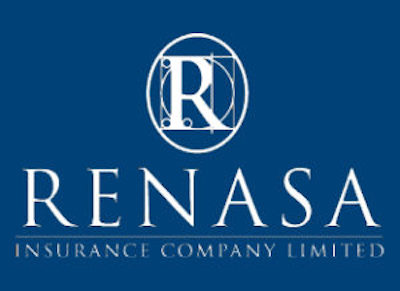

Allianz Global Corporate & Specialty (AGCS)
- The potential for damage from fire or lack of maintenance can increase in mothballed or idle production facilities and industrial plants.
- Companies from the automotive, aviation or mechanical engineering sectors can be particularly hard hit.
- Companies should focus on reducing the risk of fire, safe storage of flammable materials and liquids, and implementing proven guidelines for building safety and maintenance if they have to temporarily close premises because of the outbreak.
Many companies are having to shut down their premises temporarily at short notice due to the Covid-19 pandemic. According to the risk consultants of Allianz Global Corporate & Specialty (AGCS), improper action or negligence when decommissioning buildings and production facilities brings risks for companies. Mothballed factories or offices are by no means safe from fire or other hazards – in fact such risks can be exacerbated when premises are idle or largely unoccupied.
In a new publication, Coronavirus: Safety Measures For Businesses Forced To Temporarily Close Their Premises, AGCS experts provide an overview of general security and prevention measures to help avoid physical damages, such as regular checks of fire protection systems and the safe storage of flammable materials and liquids if premises have to be shutdown. In response, AGCS is also increasingly providing security advice to its customers via remote monitoring technologies that digitally visualize buildings and security features through photo and video recordings without the need for many people to be physically on site.
“We already see a number of losses that occur on holidays or weekends when employees are not largely present on sites or premises,” says Stephan Barnard, Regional Head of Risk Consulting, AGCS Africa: “The production and operating shutdowns currently being caused by the coronavirus pandemic can also bring increasing hazards for businesses.” Among the industries most affected are automotive manufacturers and suppliers, airlines, airport operators, mechanical and plant engineering firms, the hotel industry and many other large and small production and service companies.
The coronavirus outbreak has led to considerable disruption for both individuals and business operations worldwide. For businesses, the growing number of restrictions imposed by public authorities means that offices, factories and other sites may remain unused or unattended for a longer period of time than usual, as they are ordered to close.
“The potential damage caused by fire or as a result of inadequate maintenance remains, or even increases, when operations are shutdown. There are specific measures for loss prevention that can be followed in order to prevent damage during the shutdown of operational facilities as much as possible,” Barnard says. If possible, regular inspections and tests of fire protection systems should be continued, as these can greatly reduce the effects of a fire. An AGCS analysis of loss events in the insurance industry shows that fires account for almost a quarter (24%) of the value of all insured events in industrial insurance over a period of five years. Fires have caused insurance losses worth more than 14 billion euros from around 9,500 claims.
AGCS Risk Consultants focus on four main areas of loss prevention measures in the publication: reducing the risk of fire, safe storage of flammable materials and liquids, compliance with utility and services guidelines, and the use of best practices in building safety and maintenance.
Specifically, it is recommended, for example, that companies consider regular checks of all existing automatic fire detection systems, sprinkler systems and fire pumps, and other existing fire protection systems, even if this is difficult in the current circumstances.
Highly flammable materials such as raw and finished goods, packaging, pallets, waste and flammable liquids located within shutdown buildings should be reduced as much as possible. Where this is not possible, a safety distance of at least 1.5 meters should be maintained between electrical equipment and any remaining materials.
Another measure to consider is that companies decommission all hazardous process and utility equipment, including pipes for flammable liquids and gases. Depending on the specifics of the location, power to the premises should also be shut down, except where required for fire alarms, fire safety and security systems. Entrance and exit doors should be secured with high quality locking systems and interior and exterior lighting should be kept to a minimum, as necessary for inspection, security patrols and access purposes.
Despite the current restrictions imposed by the coronavirus outbreak, AGCS risk consultants are still available to provide technical advice to companies and are increasingly relying on new technologies to do so: “Of course, we can discuss idle building scenarios by telephone or video conference and recommend improvement measures. We are also increasingly using remote monitoring tools such as MirrorMe,” explains Barnard. Using photos and videos, remote risk assessments of factories or buildings can be carried out with the results then shared with the customer via a digital platform.
The complete overview of possible actions for companies that are forced to temporarily close buildings, factories and facilities due to the coronavirus is available here.




